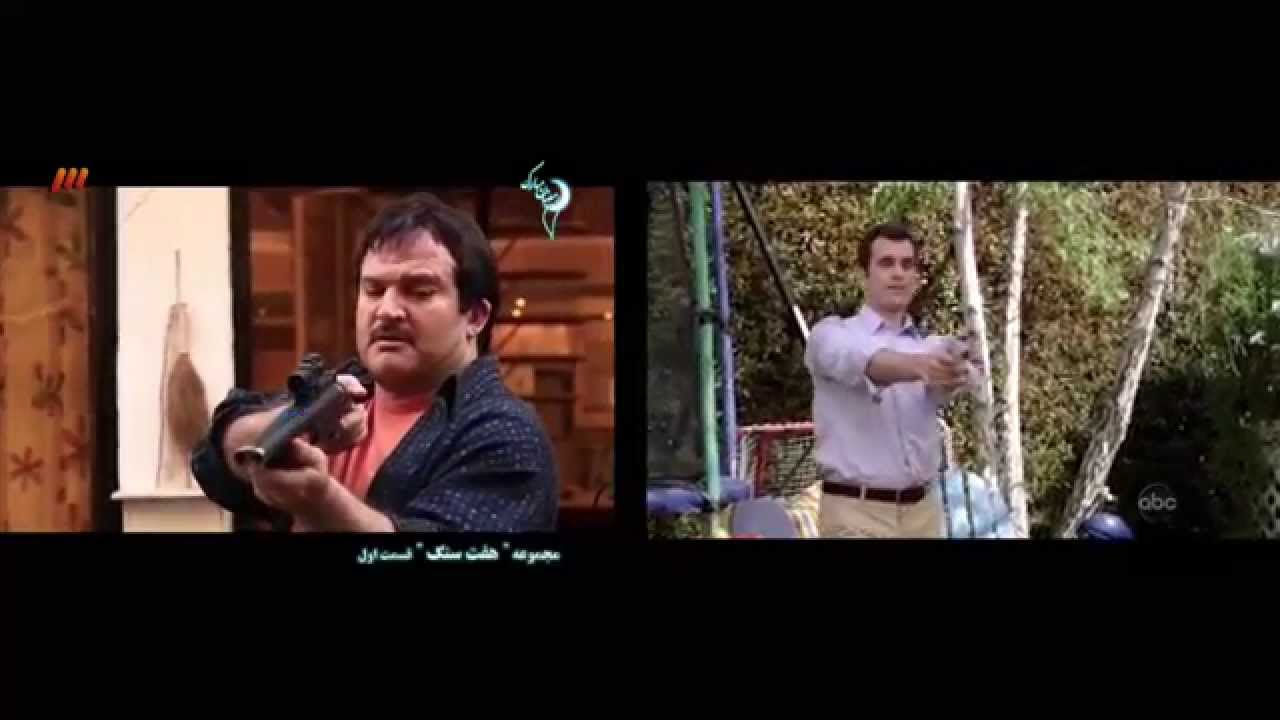
To Iranian devotees of the situation comedy, the remarkable similarity between the Iranian television show Seven Stones and ABC’s Modern Family has long been evident. A recent video clip uploaded to YouTube even presents nearly identical scenes from the popular Iranian version side by side with scenes from Modern Family. The clip, likely created by a fan, seems to have made its way to lawmakers in Tehran, who were riled this past week by the shows’ similarities.
“Adaptation in IRIB (Modern Family---- Haft Sang)”
On Saturday July 5, Seyed Ramazan Shojaei Kiasari, the vice chairman of the Iranian Parliament’s Cultural Supervisory Council, told reporters that the council had met to discuss Seven Stones.
“After an investigation, [it is our decision that] the plot of the television program Seven Stones has been copied from an American television program by the name of Modern Family, and has been re-written to be aired on [Iranian] television,” said Kiasari.
Kiasari said the council had determined that the Iranian show had been modeled too closely on Modern Family, which he said was produced by a country with a different “cultural perspective.”
“[We] feel that the replication and production (of this program) isn’t appropriate for the audience,” he said. “The imitation of the program’s content should be culturally geared towards the goals and standards of our national media.”
Modern Family, one of American television’s most popular sitcoms, has won numerous Emmy awards for its comedic content and acting quality. Similar to the ways in which The Cosby Show changed American perceptions of an African-American family in the 1980s, Modern Family is helping shift attitudes around multi-ethnic families and gay marriage. The inclusive and extended family at the core of the show’s storyline includes a gay couple, Mitchell Pritchett and Cameron Tucker (played by Jesse Tyler Ferguson and Eric Stonestreet) with an adopted Vietnamese daughter.
While the Iranian version does not include such provocative plot lines–there is no gay couple featured or adopted ethnic baby–Seven Stones does duplicate the divorce and remarriage of the family patriarch to a younger woman.
Although Kiasari doesn’t specifically mention the exact cultural conflict of interest in replicating certain plot lines of one the most popular sitcoms on American television today, it is likely that the Cultural Supervisory Council takes issue with the fact that a mainstream Iranian sitcom has been inspired by an American equivalent that so prominently features a gay couple.
On July 7, the ultra-hardline Kayhan newspaper said as much when it concluded that “the objective of [Modern Family] is to promote homosexuality in the United States.”
The council did not make a final decision regarding the future of Seven Stones, but the council’s vice chairman did note, “A report will be prepared regarding the program’s content and the council will make a [final] decision in the forthcoming council meeting.”
Mehr News Agency, which has covered the controversy closely, notes that criticism continues, and that “the media attacks stem from not only appearance, content, structure and motion camera, but dialogue as well. There are only slight differences between the two shows.”
Alireza Bazrafshan, the director of Seven Stones, told Mehr that while Seven Stones had been inspired by Modern Family, the dialogue and relationships had been recreated by the team’s Iranian writer. He noted also that the inspiration was neither secretive nor particularly new, and that he had said in previous interviews before the show even aired that it was based on Modern Family.
So why the sudden fracas? Mehr points to the show’s state broadcaster, Islamic Republic of Iran Broadcasting (IRIB), which strives to both capture a wide Iranian audience and peddle culturally conservative content.
The report asks, “Why wasn't the audience taken into consideration before the show was actually produced, filmed, and aired? Why does IRIB always try to fix the situation after the fact (and never before)?”
visit the accountability section
In this section of Iran Wire, you can contact the officials and launch your campaign for various problems























comments